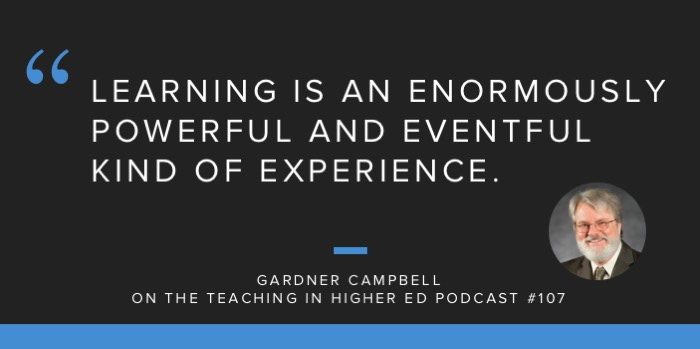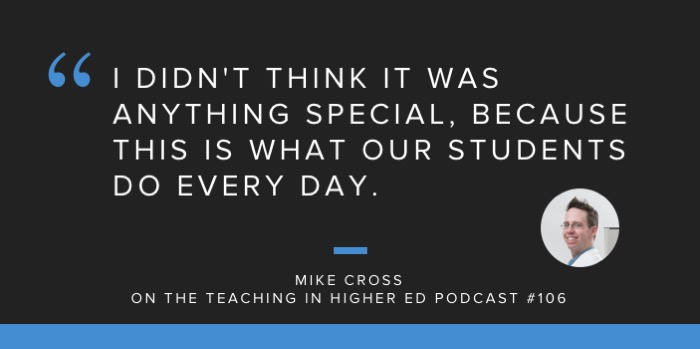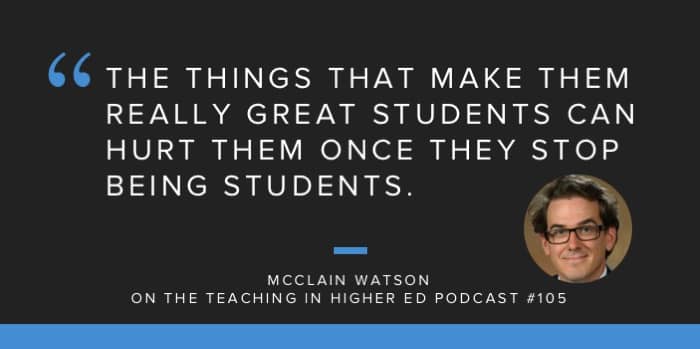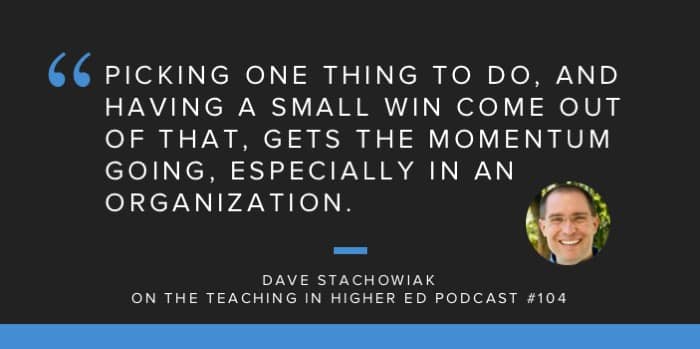Gardner Campbell talks about engaging learners.

Quotes
Learning is an enormously powerful and eventful kind of experience.
—Gardner CampbellRecognize that great ideas of all kinds come from all kinds of people at all stages of their knowledge.
—Gardner CampbellThere are some great ideas that are forever closed off to an expert because he or she is simply too conditioned by prior learning.
—Gardner Campbell
Resources
- Seymour A. Papert's books
- APGAR for class meetings by Gardner Campbell
- Derek Bruff reflects on Gardner Campbell’s APGAR test for class meetings
- Book: Smart Mobs* by Howard Rheingold
- Video: Mr. Hand from “Fast Times at Ridgemont High”
- Song: Peter Gabriel’s Solsbury Hill
- PHPBB Discussion Forum
- Book: Where Good Ideas Come From* by Steven Johnson
- Hacking the Academy
Are You Enjoying the Show?
- Rate/review the show. Please consider rating or leaving a review for the Teaching in Higher Ed podcast on whatever service you use to listen to it on (iTunes, Stitcher, etc.). It is the best way to help others discover the show.
- Give feedback. As always, I welcome suggestions for future topics or guests.
- Subscribe. If you have yet to subscribe to the weekly update, you can receive a single email each week with the show notes (including all the links we talk about on the episode), as well as an article on either teaching or productivity.



